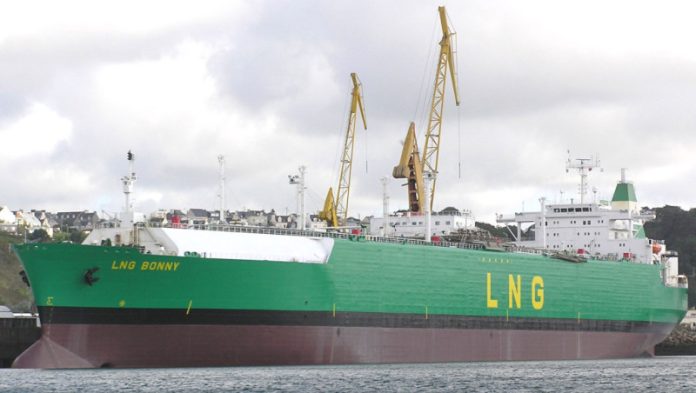UTM Floating LNG Limited, JGC, Technip Energies, and KBR have signed a Front-End Engineering Design (FEED) contract for the development of Nigeria’s first FLNG facility.
With the signed contract, the development of the FLNG facility in block OML 204 offshore Nigeria will kick off.
According to Chief Timipre Sylva, the Nigerian Minister of Petroleum Resources, with factors such as a lack of investment, transportation and export infrastructure, and technological challenges disrupting Nigeria from maximizing its gas industry, the FLNG project is a step forward in the right direction for the west African country to develop, exploit and monetize its over 209 trillion cubic feet of proven gas resources and a potential upside of 600 tcf of gas.
“Given the large resources that may be developed and used for commercial purposes, we have already proclaimed that gas is our transition fuel and a destination fuel, and we anticipate that it will be a major component of our energy mix by the year 2060. As a developing nation, we believe that affordable, accessible, and reliable energy will continue to be essential to sustaining and powering our growing economy and lifting millions out of poverty. As a government, we know our action is essential to enable the evolution of the energy system. We believe innovation, technology, and policy will be the key drivers of change”
“We are aware that the number of offshore gas finds has surged in recent years around the world, with LNG and FLNG becoming even more important in terms of satisfying the world’s future energy needs. According to market research analysts, the FLNG market is estimated to increase at a compound annual growth rate of 27.14%, reaching $88.99 billion by 2024. The UTM offshore FLNG project is therefore timely and will lead towards a faster-moving, more diverse, and more flexible global LNG industry,” Sylva said.
The minister also highlighted the importance of collaborative partnership, commending the “African Export-Import Bank, under the leadership of its President and Chairman, Benedict Okey Oramah, for orchestrating the signing of the Memorandum of Understanding with UTM Offshore to raise $5 billion for the development of Nigeria’s first FLNG project.”
Julius Dediare Rone, CEO and Chairman of UTM Offshore added that gas and FLNG will play a crucial role in helping the Nigerian government to meet its three priorities – security of supply, economic competitiveness, and a reduction of greenhouse gas emissions.
READ ALSO: Nigerian Senate backs CBN on redesign of naira notes
“We opted for FLNG because FLNG was originally developed to help realize the promise of natural gas – specifically, to bring gas to the global market from small offshore fields and nearshore terminals in areas lacking infrastructure – especially pipelines. And the LNG market is stuck with traditional models that do not address the world’s demand for low-cost, flexible LNG to become a preferred fuel of choice over coal and liquids. The world markets as we all know them today need low-cost, flexible LNG supply and have limited capacity to underpin major conventional projects. The solution, UTM offshore believes, is a standardized FLNG that allows the costs to be 20-40% cheaper with FID thresholds of just 1.5 – 2.5 mtpa. And this is where the UTM offshore FLNG project will hold sway, having the desired impact as well as influence,” Rone said.
Commenting on Africa’s gas and FLNG market trends, NJ Ayuk, Executive Chairman of the African Energy Chamber, reiterated that “Gas is green for Africa and crucial for driving socioeconomic development and for making energy poverty history across the continent. The Chamber commends the work being undertaken by UTM Offshore and its development and investment partners such as Afreximbank. We believe African solutions and companies will be crucial for unlocking the full potential of the continent’s massive gas resources to ensure energy security and revive industrialization.”
Original Post













